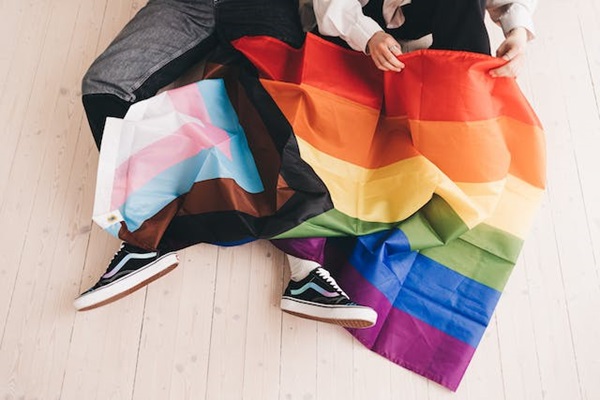
2023 was a busy and exciting year in terms of politics in Luxembourg, with two elections, with LGBTQI+ issues being one of the topics on the agenda.
Luxembourg is a diverse and modern country, defined by a high rate of multiculturalism but its claim to inclusivity is not always as straightforward as it might seem. Until recently, the Grand Duchy had the world's third openly gay head of government. Furthermore, it held third place for three consecutive years in the Rainbow Europe ranking, the annual analysis of best and worst nations for LGBTIQ+ rights in Europe.
In 2022, however, Luxembourg fell to fifth place, and in May 2023, ILGA Europe revealed that it had lost two more places. The score of 68% landed it in seventh place. Rosa Lëtzebuerg, the national LGBTIQ+ organisation, noted that this was a consequence of a near standstill in legislative work. Faced with no new bills having been introduced in parliament to strengthen the rights of LGBTIQ+ people, Rosa Lëtzebuerg highlighted its urgent demands, such as the prohibition of surgeries on children with variations of sex characteristics without their informed consent or the automatic recognition of parenthood for same-sex couples. One of the roundtables held in the run-up to the 2023 legislative elections specifically addressed LGBTIQ+ issues.
The newly formed government's coalition agreement revealed the legislative work to be undertaken for the advancement of rights for the LGBTIQ+ community. Rosa Lëtzebuerg noted that the new government included six of its 37 demands in their agreement, namely:
- the establishment of a Ministry for Gender Equality and Diversity;
- a ban on conversion therapies to protect individuals' physical and mental integrity;
- blood donation to be allowed for homosexual and bisexual individuals;
- open access to medically assisted reproduction (MAR);
- recognition of children from MAR and surrogacy and the automatic recognition of parenthood for same-sex couples (including an adoption law reform);
- protection and support for safe spaces.
The agreement partially included or alluded to (but did not clarify) six further points. According to Rosa Lëtzebuerg, these were:
- the revision of the LGBTIQ+ Action Plan;
- the Cohabitation Regulation Act;
- comprehensive coverage of MAR costs;
- the collection of statistics on discrimination and crimes against LGBTIQ+ individuals;
- the short-term introduction of additional gender options ("neutre" in identity documents) to protect and respect the identity of intersex and non-binary individuals;
- an expansion on the article on aggravating factors in crimes with regard to LGBTIQ+ people.
According to the association, four of these demands were already included in previous coalition agreements or formed part of draft laws still in Luxembourg's parliament. The new coalition agreement did not specify concrete measures for topics related to queer health, LGBTIQ+ issues in education, as well as asylum rights and clear statements on trans and intersex issues.
These measures are certainly still a significant improvement on legal matters that were lagging behind. Since May this year, the newly opened "Rainbow Center" has strived to provide both a new safe space and a cultural gathering point for LGBTIQ+ people, in addition to the already existing LGBTIQ+ Centre CIGALE. Several colourful and varied events for pride in Esch-sur-Alzette (multiple events over two days) and the Pride Run, which was organised for the first time in Luxembourg-Ville, marked this year's agenda in June. An inclusive LGBTIQ+ football game with a barbecue and discussions also took place in June, covering the as-of-yet little-explored realm of inclusive sports events for the community this year. Roundtable discussion events on LGBTIQ+ issues also took place on several occasions in 2023.
Another new establishment that opened in September this year was Lëtz Boys, the first gay bar in Luxembourg since the Bar Rouge closed down in 2020. Despite the male-centric name, the bar has since expressed a desire to organise inclusive events and described itself as a "gay bar open to all gays and their friends”. The queer feminist cinema club in Luxembourg "queer loox" also celebrated its ten years of existence this late autumn.
Despite being a small country in which it could sometimes be difficult to find like-minded people for its even smaller LGBTIQ+ community, Luxembourg seems to be home to more and more new initiatives and events. This is a highly welcome development in a country that continues to strive for equality and acceptance. As we celebrate the progress made, it is crucial to acknowledge the challenges that persist. At the heart of the struggle for LGBTIQ+ rights is the fundamental principle that every individual, regardless of their sexual orientation or gender identity, deserves respect, dignity and equal treatment. It is not just a matter of legal frameworks but also a call for a cultural shift that promotes more empathy, understanding and acceptance of the rich tapestry of human diversity.









